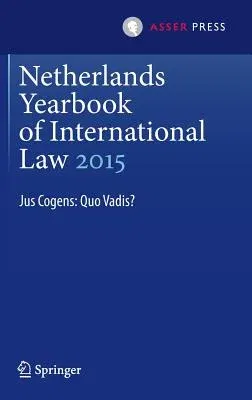Netherlands Yearbook of International Law 2015: Jus Cogens: Quo Vadis? (2016)Hardcover - 2016, 16 August 2016

Qty
1
Turbo
Ships in 2 - 3 days
In Stock
Free Delivery
Cash on Delivery
15 Days
Free Returns
Secure Checkout

Part of Series
Netherlands Yearbook of International Law
Print Length
471 pages
Language
English
Publisher
T.M.C. Asser Press
Date Published
16 Aug 2016
ISBN-10
9462651132
ISBN-13
9789462651135
Description
Product Details
Book Edition:
2016
Book Format:
Hardcover
Country of Origin:
NL
Date Published:
16 August 2016
Dimensions:
23.39 x
15.6 x
2.69 cm
ISBN-10:
9462651132
ISBN-13:
9789462651135
Language:
English
Location:
The Hague
Pages:
471
Publisher:
Weight:
857.29 gm